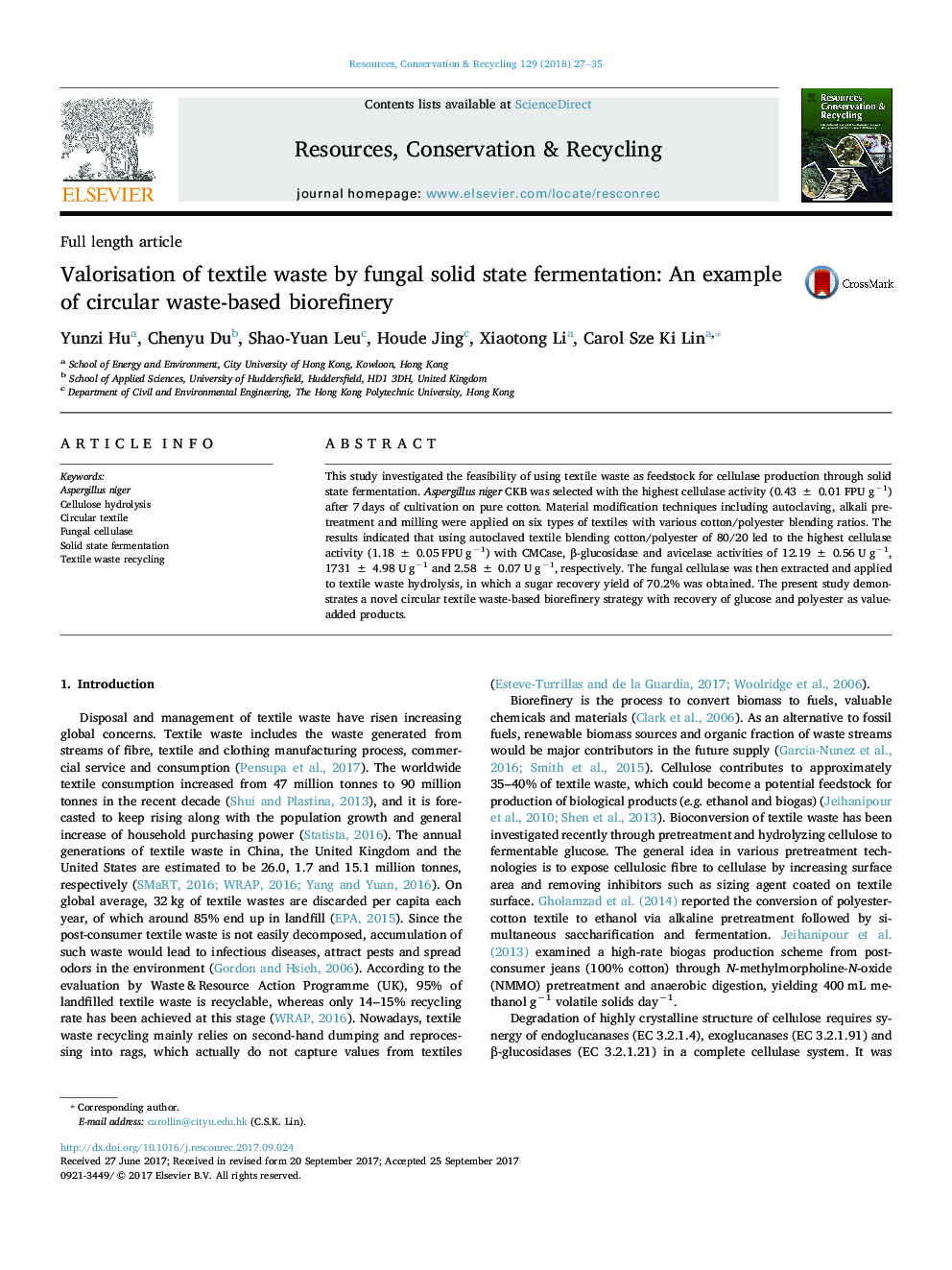| Article ID | Journal | Published Year | Pages | File Type |
|---|---|---|---|---|
| 5118572 | Resources, Conservation and Recycling | 2018 | 9 Pages |
â¢Textile waste was utilized in cellulase production via solid state fermentation (SSF).â¢Fermentation conditions were investigated for improvement of cellulase production.â¢Î²-Glucosidase of high activity 1731 U gâ1 was obtained from cotton/PET blended textile.â¢Fungal cellulase product obtained from SSF was used in hydrolysis of textile waste.â¢Glucose and polyester were recovered from textile waste with high yields.
This study investigated the feasibility of using textile waste as feedstock for cellulase production through solid state fermentation. Aspergillus niger CKB was selected with the highest cellulase activity (0.43 ± 0.01 FPU gâ1) after 7 days of cultivation on pure cotton. Material modification techniques including autoclaving, alkali pretreatment and milling were applied on six types of textiles with various cotton/polyester blending ratios. The results indicated that using autoclaved textile blending cotton/polyester of 80/20 led to the highest cellulase activity (1.18 ± 0.05 FPU gâ1) with CMCase, β-glucosidase and avicelase activities of 12.19 ± 0.56 U gâ1, 1731 ± 4.98 U gâ1 and 2.58 ± 0.07 U gâ1, respectively. The fungal cellulase was then extracted and applied to textile waste hydrolysis, in which a sugar recovery yield of 70.2% was obtained. The present study demonstrates a novel circular textile waste-based biorefinery strategy with recovery of glucose and polyester as value-added products.
Graphical abstractDownload high-res image (94KB)Download full-size image
